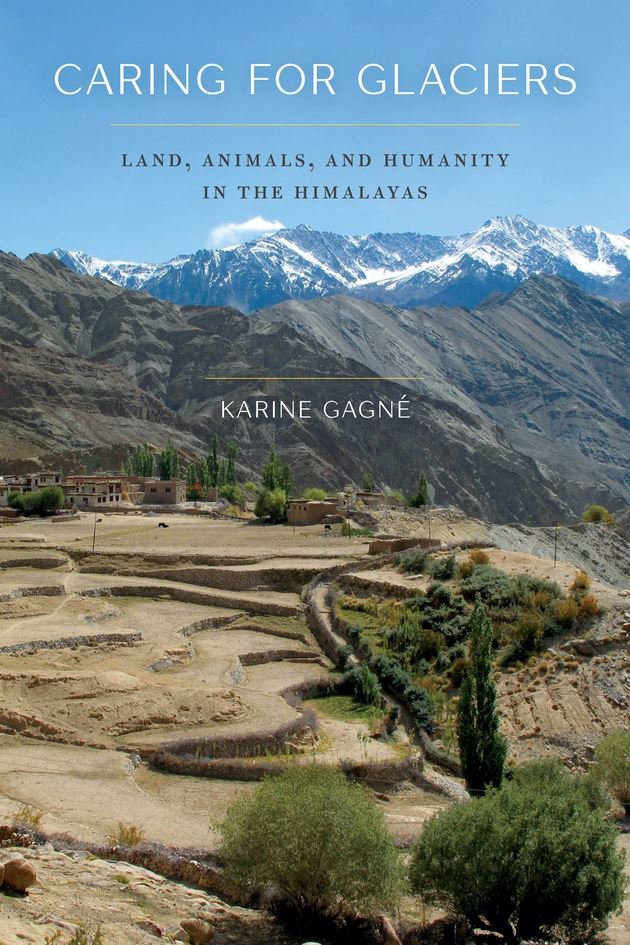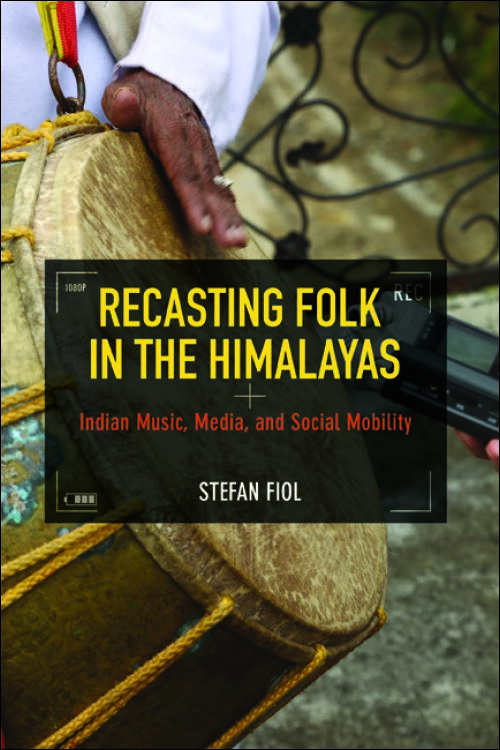The
James Fisher Prize for First Books on the Himalayan Region honors the scholarly contributions of Dr. James Fisher to scholarship on the region. The prize will recognize an outstanding first book on the Himalayan region, published within the past two years. Single or co-authored books will be accepted which have high quality of research, significant contribution to Himalayan Studies, notable innovation, and clarity of writing in the English language.
The ANHS Executive Council underwent a major turnover in 2020 and has been managing significant transitions for the Association over the last 18 months. Given also the disruption of the COVID-19 pandemic, we are announcing the 2019 award this year. We will soon solicit a call for books to be considered for both 2020 and 2021.
 Congratulations to the 2019 James Fisher Prize winner Karine Gagné for her book Caring for Glaciers: Land, Animals and Humanity in the Himalayas. This ethnography contributes to our understanding of human-environment relations in the Himalayan region, and employs novel theoretical interventions to do so. The book contributes to an understanding of ethics as informed by both practical activity in daily life, and beliefs about the nonhuman world. It engages the concept of an ethics of care by showing how the Ladakhi people sacrifice for the land, identify with a glacier, attend to domesticated animals, and cultivate knowledge about Ladakhi ecosystems. Based on year-round research in the Sham region of Ladakh, Gagne shows how caring for the land, glaciers, animals is a moral responsibility informed by religious ideas, but also by everyday life. In so doing she specifies a theory of the Anthropocene outside centres of global North knowledge production, where everyday human life engages nonhuman transitions at a key site manifesting contemporary geologic transformations. The book evokes a powerful moral and biophysical framework for the global call for care beyond humans, and points to critical questions about where the Indian state (and others) stands in relation to global discussions about the relationship between the human and the more-than-human.
Congratulations to the 2019 James Fisher Prize winner Karine Gagné for her book Caring for Glaciers: Land, Animals and Humanity in the Himalayas. This ethnography contributes to our understanding of human-environment relations in the Himalayan region, and employs novel theoretical interventions to do so. The book contributes to an understanding of ethics as informed by both practical activity in daily life, and beliefs about the nonhuman world. It engages the concept of an ethics of care by showing how the Ladakhi people sacrifice for the land, identify with a glacier, attend to domesticated animals, and cultivate knowledge about Ladakhi ecosystems. Based on year-round research in the Sham region of Ladakh, Gagne shows how caring for the land, glaciers, animals is a moral responsibility informed by religious ideas, but also by everyday life. In so doing she specifies a theory of the Anthropocene outside centres of global North knowledge production, where everyday human life engages nonhuman transitions at a key site manifesting contemporary geologic transformations. The book evokes a powerful moral and biophysical framework for the global call for care beyond humans, and points to critical questions about where the Indian state (and others) stands in relation to global discussions about the relationship between the human and the more-than-human.
 In addition, the Prize Committee awards Honorable Mention to Stefan Fiol for his book Recasting Folk in the Himalayas: Indian Music, Media and Social Mobililty. Fiol illustrates through an ethnographic and historical study how folk music and the terminology of “folk” is conditioned by colonial, nationalist, and caste-based values and expectations. Spatially the book focuses on the Garhwal and Kumaon region in the Indian state of Uttarakhand In so doing it explores the everyday praxis of performers and performances in order to articulate the historical and contemporary “recasting” of folk in the Indian Himalayas. Specifically “folk” is recast via a politics of caste hierarchy—“lower-caste artisans from rural areas were celebrated as the source of the artistic heritage of the nation, but upper-caste artists were required to reform these raw materials and transform them into folklore.” Fiol thus reveals how the politics of folklorization itself is inherently interconnected with social status and mobility.
In addition, the Prize Committee awards Honorable Mention to Stefan Fiol for his book Recasting Folk in the Himalayas: Indian Music, Media and Social Mobililty. Fiol illustrates through an ethnographic and historical study how folk music and the terminology of “folk” is conditioned by colonial, nationalist, and caste-based values and expectations. Spatially the book focuses on the Garhwal and Kumaon region in the Indian state of Uttarakhand In so doing it explores the everyday praxis of performers and performances in order to articulate the historical and contemporary “recasting” of folk in the Indian Himalayas. Specifically “folk” is recast via a politics of caste hierarchy—“lower-caste artisans from rural areas were celebrated as the source of the artistic heritage of the nation, but upper-caste artists were required to reform these raw materials and transform them into folklore.” Fiol thus reveals how the politics of folklorization itself is inherently interconnected with social status and mobility.

